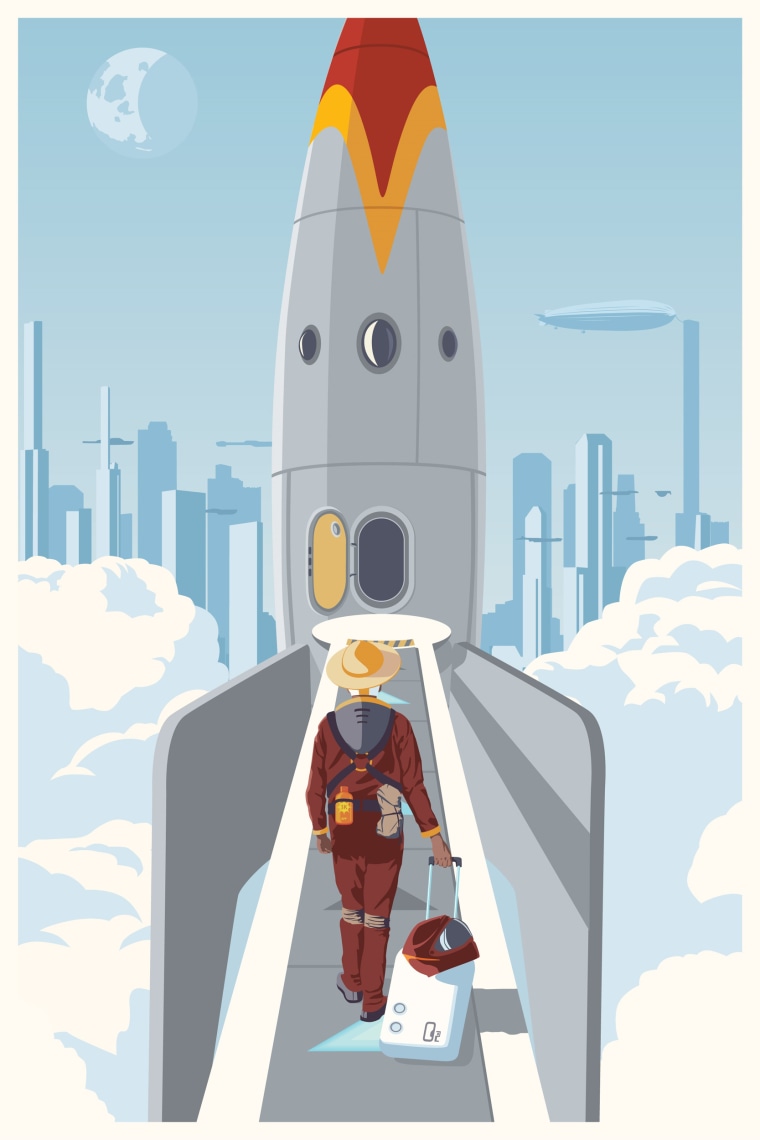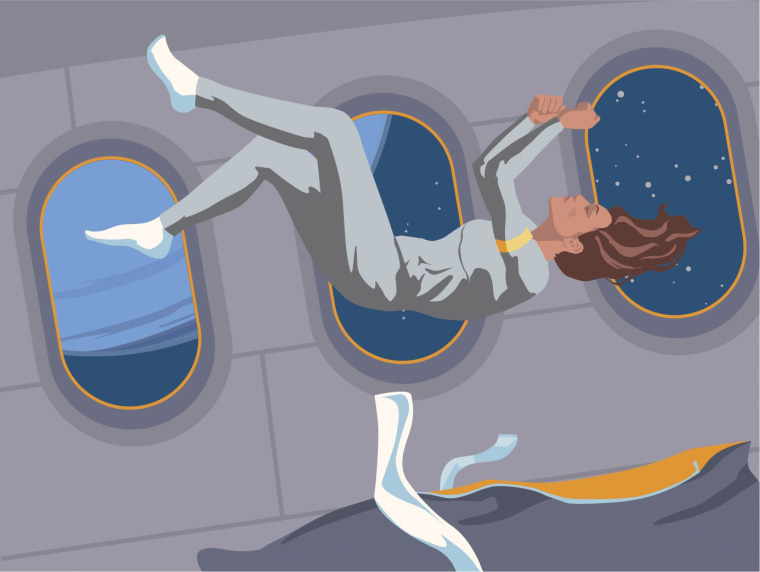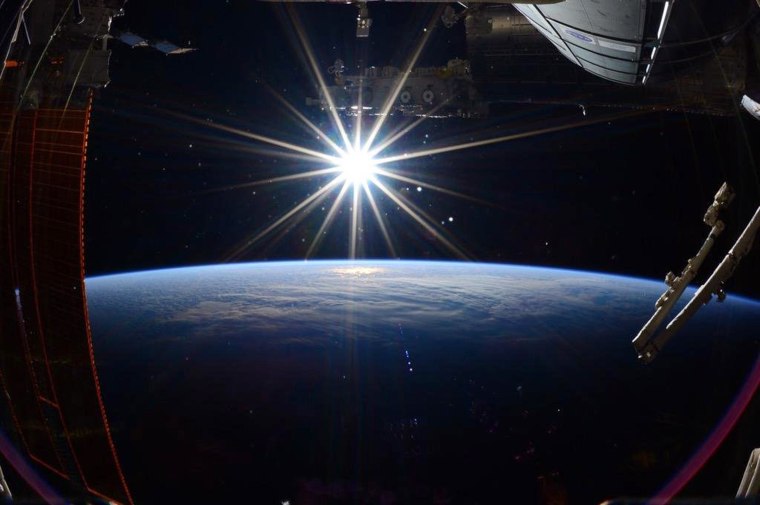Tempted by the thought of being able to jet set to Mars? Since space tourism may become a tangible reality as soon as 2018, we’re diving into some specific health concerns of relocating (even for a brief vacation) to another planet — from how to get some sleep (when your suspended mid-air) to proper hygiene (or the lack thereof). Luckily, we have the authors behind Vacation Guide to the Solar System to school us on the real science behind staying healthy in space.
You can’t always predict how you’ll adjust to new time zones, cuisines, and climates. Seemingly simple tasks such as sleeping, eating, and bathroom time can initially feel overwhelming in environments that disorient the senses. Rest, nutrition, and exercise are essential when a simple spacewalk requires meticulous practice filling air tanks, checking control systems, and inspecting your space suit for leaks. A sickness-induced slip-up can mean the difference between life and death.
Food and Nutrition
Frankly, eating in space is an underwhelming experience. Tastes are muted because of low gravity–induced nasal congestion that interferes with your sense of smell, like eating with a cold. Don’t worry, you’ll soon get used to eating pouches of rehydratable food. Adding hot sauce to your meals can help add flavor. You might even start to look forward to eating insects. They’re an efficient source of protein and can be bred on long-haul space flights. On special occasions you might get a juicy greenhouse-grown tomato or crisp head of lettuce, but most of the time you’ll be eating compressed food, which has a high ratio of calories to volume. You’ll need to take vitamins to supplement the limited variety in your diet.
On your flight, water for drinking, as well as for washing, brushing your teeth, and even the water that you pass when you go to the bathroom can be processed through a distillation system and used again. It’s important to check these systems on a regular basis, since no one likes drinking water that tastes like urine.

Hygiene
Though you shouldn’t sweat much in the filtered air of your ship, you’ll need to rethink your personal hygiene standards. Clothes don’t get dirty as quickly in space as they do on Earth, which is good, because you need to make them last. On any long trip, you will use minimal water or moist towelettes, or simply do without a shower for long periods. If you don’t wash, after about five days your clothes become soaked with your secretions and can’t absorb any more, and your skin begins to get crusty and rank. Luckily the human sense of smell is very adaptable.
While you will be tempted to change your clothes, doing so only stimulates your skin’s oil production. Resist the urge for as long as possible. After about eight days you will adjust and the odor will fade into the background of your perception. Once your clothes are unwearable, simply jettison them, like the astronauts on the International Space Station do.
Toilet
Going to the bathroom in space takes some practice, so brace yourself for a period of toilet training. Low-g toilets employ a form of suction to direct waste safely away. Liquids will go to the water reclamation system and solids will be ejected. If you’re growing your own food on a long trip, your solid waste can be diverted for use as fertilizer. You may find that without the help of gravity, things take a bit longer to move than they do on Earth.
Mental Health
Everyone will find their limits tested on an extended voyage in cramped quarters. If you’re worried about whether you can hack it, you might want to try an assessment called SUBSCREEN. It’s been used by submariners since the 1980s to determine whether military personnel are fit to spend months at the bottom of the ocean. Don’t worry, 97 percent of people who take the test pass with no problem.

Sleep
Sleeping in space is an unusual yet restorative experience. Many veteran travelers claim microgravity is the best mattress. You don’t need a pillow, and you can rest your head virtually anywhere within your spacecraft. A suitable patch of wall with a sleeping bag and straps to keep you in one place is all you need to settle down for the night. A word of caution to those who fall asleep easily: Be sure that if you’re feeling tired you secure yourself to a stable object, or you could float away and bump your head.
A quick note about intimate relations: Your normal routine may become tricky in space. You’ll need to figure out the best way to snuggle when the slightest nudge can send you flying.
Radiation
Astronauts on the International Space Station are mostly protected from space radiation by Earth’s magnetic field. This radiation can cause damage to your cells by changing your DNA, which can lead to cancer. It might even cause significant brain damage, a condition known as “space brain.” Symptoms include anxiety, depression, difficulty making decisions, and memory deficits. If you notice one of your companions starting to act a bit off, it might be time for a checkup. The best way to avoid any possible harm is to make sure you have a well-shielded ship and suit. Or simply stay home.
For more space features and news, check out NBC News MACH's Making of Astronaut series.
From VACATION GUIDE TO THE SOLAR SYSTEM: Science for the Savvy Space Traveler by Olivia Koski and Jana Grcevich, published on June 6, 2017 by Penguin Books, an imprint of Penguin Publishing Group, a division of Penguin Random House, LLC. Copyright © 2017 by Olivia Koski, Jana Grcevich, and Guerilla Science, LLC.
